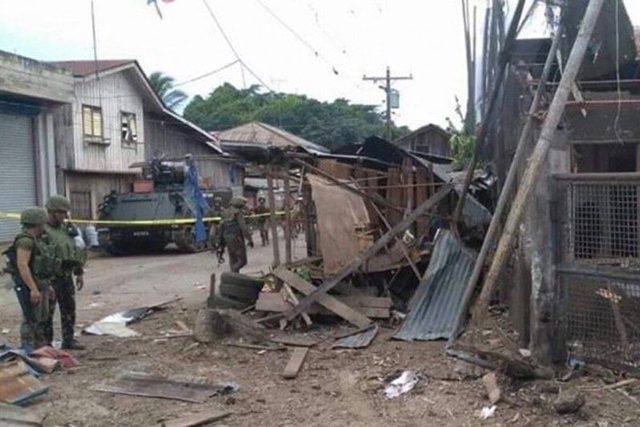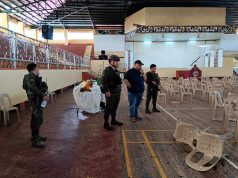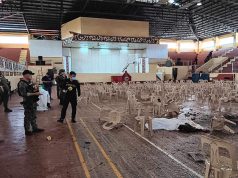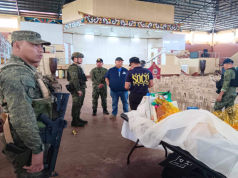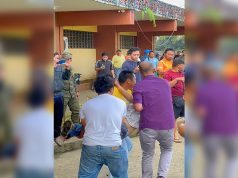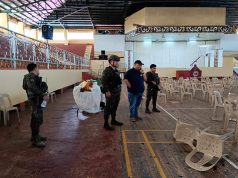A bomb attack that killed eight people at a military base in the southern Philippines was likely a suicide bombing, the army said on Saturday, another blow to government efforts to rein in militants inspired by Islamic State.
Prime suspects in Friday’s attack on Jolo island was the Abu Sayyaf, a militant group that President Rodrigo Duterte has vowed to crush after decades of banditry and kidnapping, and countless attacks on civilian and military targets.
Radical factions of Abu Sayyaf have pledged allegiance to Islamic State, which via its Amaq news agency, claimed responsibility for the Friday attack, saying its fighters had infiltrated the base.
It posted a photograph of two young men next to a black flag and wearing vests designed to hold explosives.
“Our main suspect is Abu Sayyaf. They are the only one with motive to sow terror,” said Gerald Monfort, spokesman of Joint Task Force Sulu.
“We recovered parts like head, feet. Both of them are male. We still don’t know if they are foreign or local.”
The bombing killed three soldiers, three civilians plus the two suspected attackers, and wounded 22.
If confirmed, it would be the Philippines‘ third suicide bombing in a year, marking a sinister turn in its fight against the militants, who have been joined by fighters from Malaysia and Indonesia and have capitalized on the south’s jungles, porous borders and abundant arms.
The attacks were all in the Sulu archipelago, Abu Sayyaf’s stronghold, and included a twin bombing of a church on Jolo island in January, which killed 21 people, and a van bomb at a checkpoint on neighboring Basilan island, which killed 11.
Those attacks followed a brazen takeover of Marawi City in 2017 by an alliance of domestic and foreign fighters, who held it through months of ground offensives and air strikes before the military prevailed.
More than 1,000 people were killed, most of them insurgents, and half of the city was destroyed.
Presidential spokesman Salvador Panelo said the government would stop at nothing to thwart extremists.
“We will run after them until they can run no more,” he said.
“The government will harness all its might to destroy the enemies of the state.
“If these bandits have not learned from the terrorists who were annihilated in Marawi, then this time they will.” —By Martin Petty and Neil Jerome Morales; Editing by Robert Birsel

